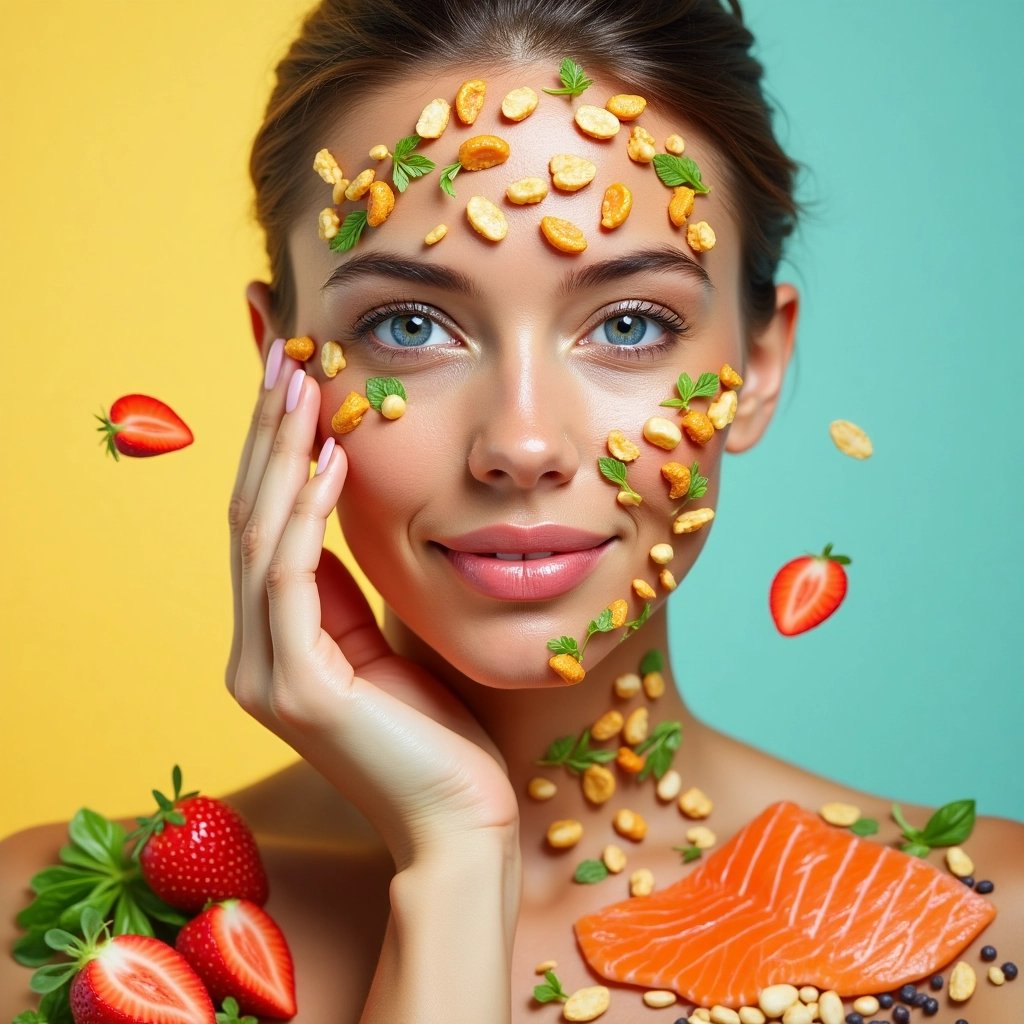What you eat plays a crucial role in the health and appearance of your skin. A balanced diet rich in vitamins, minerals, and antioxidants can help maintain a clear, glowing complexion, while unhealthy eating habits may lead to acne, dullness, and premature aging.
This guide explores how diet affects your skin and the best foods to include for healthy, radiant skin.
1. How Diet Affects Your Skin
The skin is the body’s largest organ, and it reflects what’s happening inside your body. Poor nutrition can contribute to:
- Acne and breakouts caused by excess sugar and processed foods.
- Dry, flaky skin due to a lack of essential fatty acids.
- Premature aging from free radical damage and a deficiency in antioxidants.
- Inflammation and redness triggered by dairy, refined carbs, or food sensitivities.
On the other hand, a nutrient-rich diet can:
✔ Improve skin elasticity and hydration.
✔ Reduce breakouts and irritation.
✔ Boost collagen production for firmer skin.
✔ Protect against sun damage and premature aging.
2. The Best Foods for Healthy, Glowing Skin
1. Healthy Fats – For Hydration and Elasticity
Healthy fats keep your skin soft, hydrated, and youthful by maintaining the skin barrier.
✔ Best sources: Avocados, walnuts, almonds, olive oil, chia seeds, flaxseeds, and fatty fish (salmon, sardines).
2. Vitamin C – For Brightening and Collagen Production
Vitamin C is a powerful antioxidant that boosts collagen and helps fade dark spots.
✔ Best sources: Oranges, kiwis, strawberries, bell peppers, broccoli, and tomatoes.
3. Omega-3 Fatty Acids – For Reducing Inflammation
Omega-3s help calm acne, redness, and irritation while keeping the skin hydrated.
✔ Best sources: Salmon, mackerel, flaxseeds, chia seeds, and walnuts.
4. Antioxidants – For Anti-Aging and Skin Protection
Antioxidants fight free radical damage, preventing premature aging and sunspots.
✔ Best sources: Blueberries, green tea, dark chocolate (70%+ cocoa), grapes, and pomegranates.
5. Zinc – For Acne Prevention
Zinc helps regulate oil production and promotes faster healing of blemishes.
✔ Best sources: Pumpkin seeds, lentils, chickpeas, cashews, and eggs.
6. Probiotics – For Clear Skin and Gut Health
A healthy gut is essential for clear skin. Probiotics balance gut bacteria and reduce inflammation.
✔ Best sources: Yogurt, kefir, kimchi, sauerkraut, and miso.
7. Water – For Hydration and Detoxification
Hydration flushes out toxins, keeping skin clear and plump. Dehydration can lead to dullness and increased fine lines.
✔ Tip: Aim for at least 8 glasses of water per day and add cucumber, lemon, or mint for extra benefits.
3. Foods That Can Harm Your Skin
🚫 Refined Sugar – Triggers inflammation and breakouts by increasing insulin levels.
🚫 Dairy – May cause acne and hormonal imbalances in some individuals.
🚫 Processed Foods – Contain preservatives and unhealthy fats that can lead to dull, tired-looking skin.
🚫 Excess Alcohol – Dehydrates the skin and accelerates aging.
🚫 Fast Food and Fried Foods – High in unhealthy fats that clog pores and cause oil imbalance.
4. Simple Dietary Changes for Better Skin
✔ Replace sugary snacks with fruits and nuts.
✔ Swap soda for herbal teas or infused water.
✔ Eat fresh, whole foods instead of processed meals.
✔ Include healthy fats and proteins in every meal.
✔ Limit alcohol and caffeine to keep skin hydrated.
Final Thoughts
Your diet has a direct impact on your skin’s health and appearance. By choosing nutrient-rich foods and avoiding processed, inflammatory ingredients, you can maintain clear, youthful, and radiant skin from the inside out.
